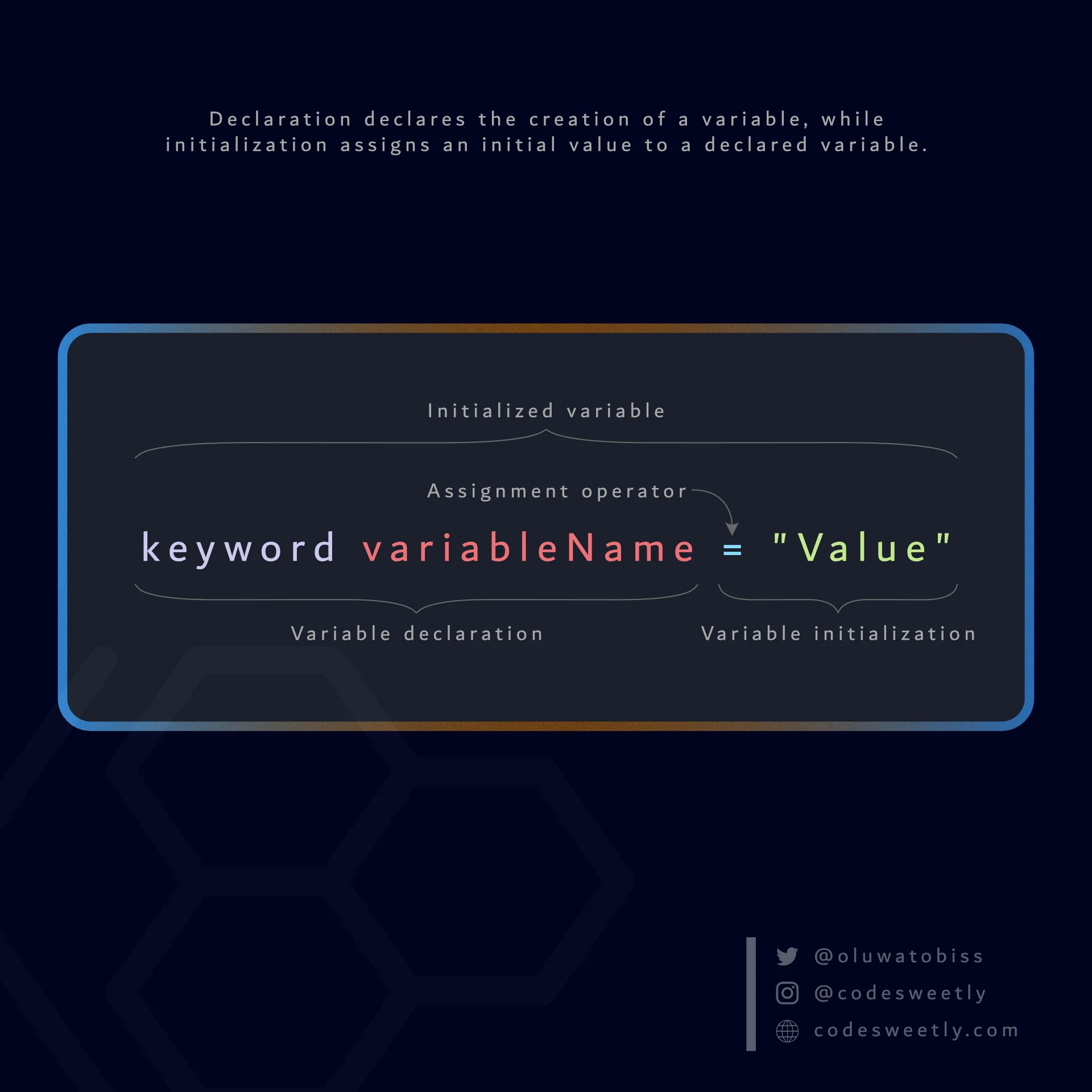Declaration vs Initialization vs Invocation in Programming
Declaration, initialization, and invocation are three popular programming terms. But what exactly do they mean? Let's find out.
What Does Declaration Mean?
Declaration means to declare the creation of variables and functions.
Here's an example:
var color;
The code above is a declaration of a JavaScript var variable named color.
Notice that we did not store anything in the color variable.
In other words, a declaration is not concerned with the storage (initialization) of values. Instead, its job is to declare the creation of variables and functions.
Here's another example:
function multiplyNumbers() {}
The statement above declares that we've created a JavaScript function named multiplyNumbers.
What Does Initialization Mean?
Initialization occurs when you assign an initial value to a variable.
Here's a visual representation:

Initialization assigns an initial value to a declared variable
Here's an example:
const color = "green";
In the snippet above, we initialized the color variable with an initial value of "green".
Here's another example:
let multiplyNumbers = function () {};
In the snippet above, we initialized the multiplyNumbers variable with an initial value of a function.
Keep in mind that when the computer reads an initialized variable, it first evaluates the expression on the right of the assignment operator. Then, it assigns the resolved value to the variable on the left side.
For instance, in the snippet below, the computer will first evaluate 70 + 90. Then, after the evaluation, it will assign the resolved value (160) to the finalAnswer variable.
const finalAnswer = 70 + 90;
Get creative with your projects
What Does Invocation Mean?
Invocation means executing a piece of code to retrieve the code's value.
Here's an example:
var color = "green";
// Invoke the color variable:
color;
// The invocation above will return: "green"
Here's another example:
function multiplyNumbers(a, b) {
return a * b;
}
// Invoke the multiplyNumbers function:
multiplyNumbers(3, 100);
// The invocation above will return: 300
Overview
- Declaration declares the creation of variables and functions.
- Initialization assigns initial values to variables.
- Invocation executes a piece of code to retrieve its value.
Your support matters: Buy me a coffee to support CodeSweetly's mission of simplifying coding concepts.
Join CodeSweetly Newsletter